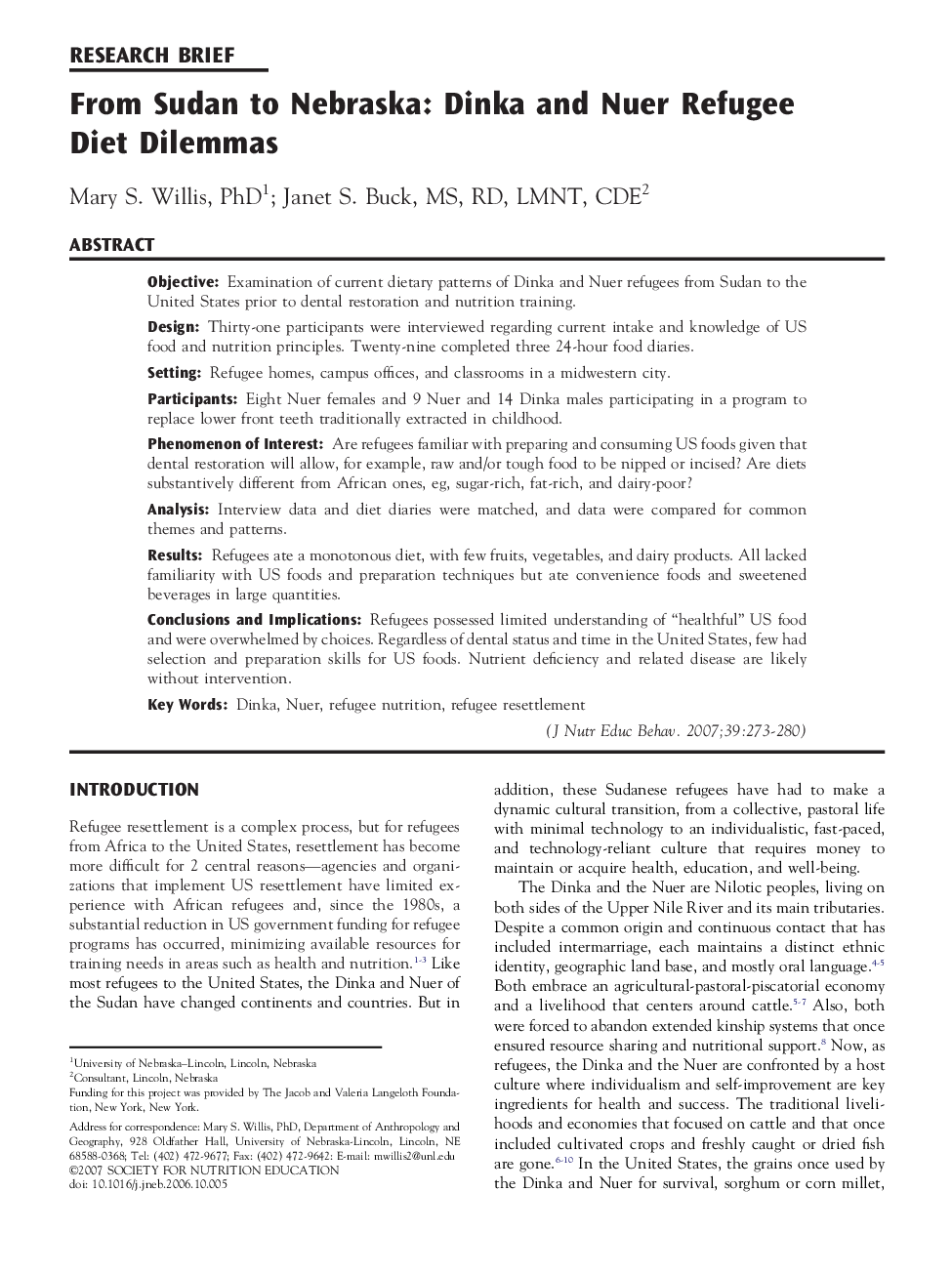| Article ID | Journal | Published Year | Pages | File Type |
|---|---|---|---|---|
| 363346 | Journal of Nutrition Education and Behavior | 2007 | 8 Pages |
ObjectiveExamination of current dietary patterns of Dinka and Nuer refugees from Sudan to the United States prior to dental restoration and nutrition training.DesignThirty-one participants were interviewed regarding current intake and knowledge of US food and nutrition principles. Twenty-nine completed three 24-hour food diaries.SettingRefugee homes, campus offices, and classrooms in a midwestern city.ParticipantsEight Nuer females and 9 Nuer and 14 Dinka males participating in a program to replace lower front teeth traditionally extracted in childhood.Phenomenon of InterestAre refugees familiar with preparing and consuming US foods given that dental restoration will allow, for example, raw and/or tough food to be nipped or incised? Are diets substantively different from African ones, eg, sugar-rich, fat-rich, and dairy-poor?AnalysisInterview data and diet diaries were matched, and data were compared for common themes and patterns.ResultsRefugees ate a monotonous diet, with few fruits, vegetables, and dairy products. All lacked familiarity with US foods and preparation techniques but ate convenience foods and sweetened beverages in large quantities.Conclusions and ImplicationsRefugees possessed limited understanding of “healthful” US food and were overwhelmed by choices. Regardless of dental status and time in the United States, few had selection and preparation skills for US foods. Nutrient deficiency and related disease are likely without intervention.
